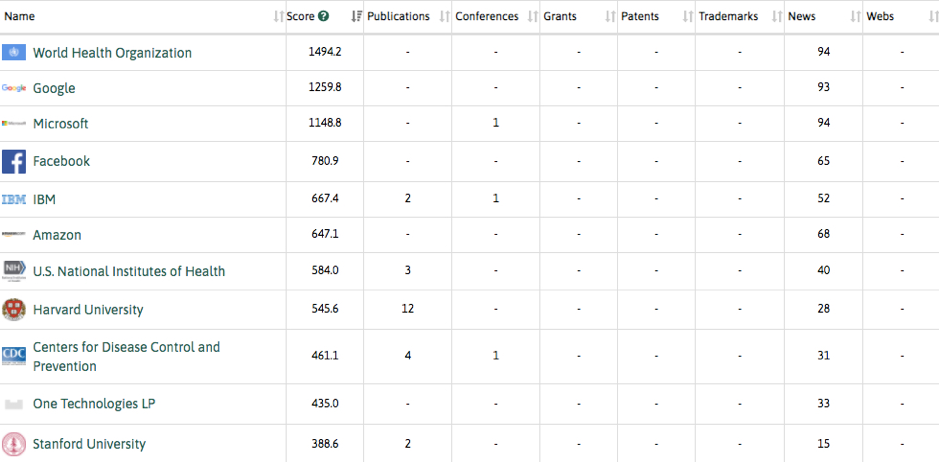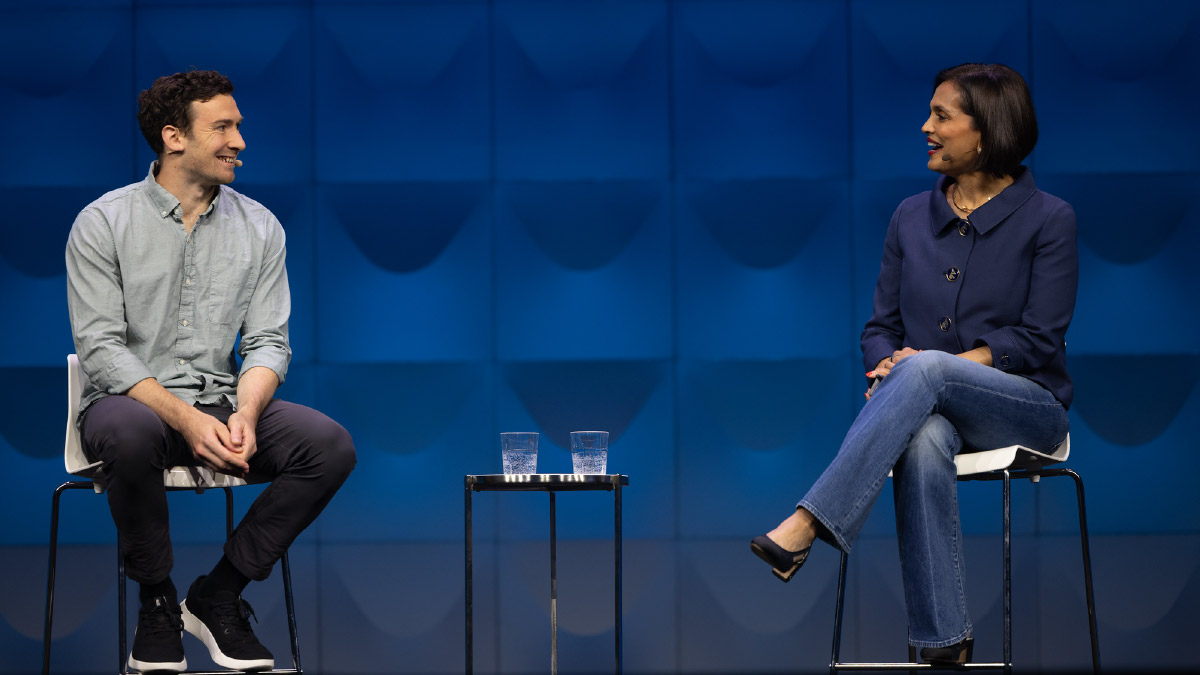Experts are turning to artificial intelligence (AI) to find a cure for COVID-19 as healthcare workers struggle to contain the effects of the disease worldwide.
Data from the tech scouting platform Linknovate shows the number of expert records linking AI to epidemics had reached the same level in the first quarter of 2020 as it was in the whole of 2019. And 2019 was already the highest-ranking year on record.

The Linknovate scores relate to the number of mentions of research bodies and topics in papers and news items. This is not the same as tracking the money spent on projects, or the number of schemes. But it does give a picture of who is involved and what is going on in a given field.
Much of the AI work being carried out around COVID-19 builds on projects that had started in the wake of other disease outbreaks. At the Penn State College of Information Sciences and Technology, for instance, a team last year started looking at using AI to track and control the flu virus.
Although flu does not spread as fast as the SARS-CoV-2 virus that causes COVID-19, the two have plenty in common. This means Penn State’s study to help in the fight against the coronavirus. And Penn State is just one of many U.S. bodies looking at the topic.
Linknovate’s data shows the U.S. is putting the most effort by far into using AI to fight epidemics. But attempts to use AI to fight COVID-19 are global in scale. One of the largest research supercomputers in the world, the Barcelona Supercomputing Center (BSC), is among the bodies involved.

One of the ways it is helping beat the disease is by trying to find compounds that might neutralize the virus. To do this, the compound first needs to attach itself to the viral proteins and inactivate them. Trying to find a compound that could do this would take many years by trial and error.
But by using AI to check known compounds against a model of the virus, BSC experts can search for likely treatments in a short span of time.
Because speed is of the essence in trying to beat COVID-19, the work being done by bodies such as the BSC is vital, says the Center’s life sciences department director Alfonso Valencia.
“We are not going to solve a disease just using computation,” he says, “but without computation there won’t be a solution to these problems. There is no pharma firm in the world that can try out all the compounds needed to find a cure.”
Using AI and big data to narrow the field of likely treatments can give pharma firms and research groups a big head start before kicking off costly experimental and field trials, he says. And it’s not just public sector bodies like the BSC that are helping drug firms to fight COVID-19.

Linknovate’s data shows tech giants are among the top players linking AI to epidemics research. Some of this is because tech firms may get mentioned in passing in articles about AI and disease control, says Linknovate co-founder and CEO Manuel Noya Mariño.
But in many cases, “if you look at the references, you’ll see there really is a lot of work going on here,” Noya says. To take just one instance, in March 2020 Microsoft said it was working with Adaptive Technologies, a biotech firm, to tackle COVID-19.
And Microsoft is also involved in the COVID-19 Open Research Dataset, which as of March 18 had pulled together 29,000 studies on the virus. All this is on top of the value that tech firms are adding by helping people to stay in touch after they have been told to stay at home.
From working to schooling, tech firms are not just helping us find the right weapon to defeat COVID-19, but also keeping us alive and well while the search goes on.
###
The contents or opinions in this feature are independent and may not necessarily represent the views of Cisco. They are offered in an effort to encourage continuing conversations on a broad range of innovative technology subjects. We welcome your comments and engagement.
We welcome the re-use, republication, and distribution of "The Network" content. Please credit us with the following information: Used with the permission of http://thenetwork.cisco.com/.




